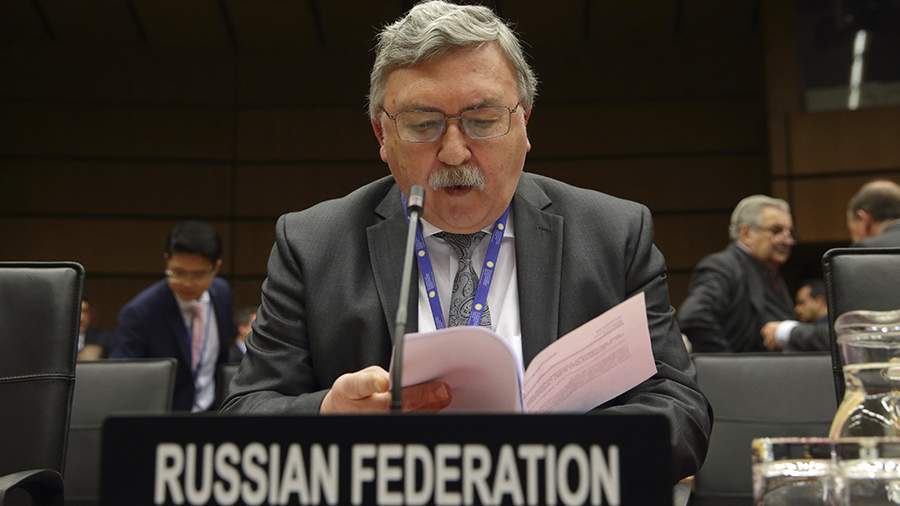Russian Permanent Representative names main problem for resumption of the JCPOA

The main obstacle to the resumption of talks on the Joint Comprehensive Plan of Action on the Iranian nuclear program (JCPOA) is the unwillingness of Western countries to resume negotiations. Mikhail Ulyanov, Russia's permanent representative to international organizations in Vienna, said on January 18.
"I believe that the key challenge in this regard is the unwillingness of Western countries to resume negotiations at this stage. In many ways, Western countries have become hostages to their own political agenda. They have failed to properly take into account the legitimate proposals and requests of the Iranian side," he was quoted as saying by the Telegram channel of the Vienna-based Russian Permanent Mission to International Organizations.
According to Ulyanov, Western countries, and the US in particular, continue to regularly carry out "not just provocative but completely inappropriate actions" against Iran.
"It is still unclear what the US position will be, whether it will recognize that the withdrawal from the JCPOA and the imposition of the 'maximum pressure' campaign has led to results directly opposite to what the US had hoped for. Let's see if the White House is ready to seek a political solution and a reasonable balance of interests, without which it would be impossible to expect a positive result," the Permanent Representative added.
Ulyanov noted that the situation on this issue may become clearer in two or three months. At the same time, he specified that Germany, France and the UK have already started resuming informal contacts.
"We see that these contacts are preliminary, it is an informal dialog, far from real negotiations. Moreover, it is obvious that European countries are not and cannot be a key player in this sphere. However, the very fact of resumption of the conversation can be assessed positively," Ulyanov explained.
The Permanent Representative emphasized that the resumption of the JCPOA would contribute to the restoration of stability in the Middle East region.
Earlier, on January 3, Iranian Foreign Minister Abbas Arkachi said that the country's authorities are ready to immediately begin negotiations on the country's nuclear doctrine with Western countries, if it will be possible to conclude a new agreement. However, the Foreign Minister added that Iran will wait for the new US government to form its own policy on the issue and only after that the negotiations will be held.
On November 24 last year, the governments of the US, Britain, France and Germany supported the IAEA resolution against Iran. The countries also expressed "grave concern" over Iran's decision to launch new centrifuges in response to the resolution.
The IAEA adopted a resolution criticizing Iran on November 21, 2024, over its lack of cooperation on the nuclear issue. IAEA chief Rafael Grossi said on November 20 of the same year that Iran had begun preparations to stop building up its stockpile of uranium enriched to 60%. He specified that the IAEA and Tehran were continuing discussions on the issue.
Prior to that, on November 17, 2024, Iranian Foreign Minister Abbas Araghchi said Iran and European countries plan to resume talks on returning to the 2015 Joint Comprehensive Plan of Action (JCPOA) on Iran's nuclear program, compliance with which was impossible after then-US President Donald Trump withdrew from the deal in 2018.
Переведено сервисом «Яндекс Переводчик»

